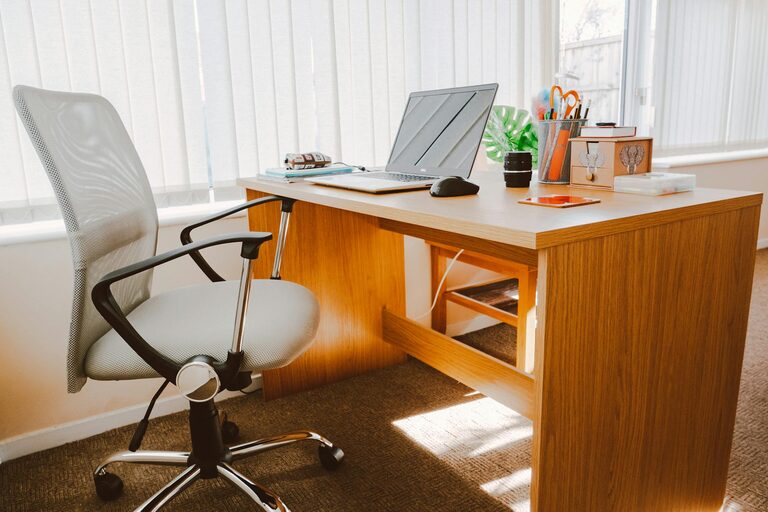Creating a comfortable and supportive workspace begins with choosing the right desk chair. Whether you work from home or at an office, the chair you sit in plays a crucial role in your comfort, posture, and overall health throughout the day. With so many options available, selecting a chair that fits your needs can feel overwhelming. This guide will help you understand the key factors to consider so you can find a desk chair that combines comfort, functionality, and style.
Why Choosing the Right Desk Chair Matters
Spending long hours sitting can lead to discomfort, back pain, and decreased focus if your chair is not designed to support your body properly. A well-chosen desk chair helps maintain good posture, reduces strain on muscles and joints, and increases your productivity by keeping you comfortable throughout your workday.
Key Features to Look for in a Comfortable Desk Chair
When shopping for a desk chair, focus on features that contribute to comfort, support, and adjustability. Here are the most important characteristics to keep in mind:
1. Ergonomic Design
An ergonomic chair is carefully designed to support the natural curve of your spine. Look for chairs with built-in lumbar support that helps maintain the lower back’s natural arch. This support reduces stress on the spine and helps prevent slouching.
2. Adjustable Seat Height
Your chair’s height should be easy to adjust to fit your desk and your body. Ideally, when sitting, your feet should rest flat on the floor, and your knees should be at a 90-degree angle. Adjustable height ensures your arms can rest comfortably on the desk without hunching your shoulders.
3. Seat Depth and Width
The seat should be deep enough to support most of your thighs, but not so deep that the back of your knees presses hard against the edge. A seat that is too narrow can be uncomfortable, while one that’s too wide may lack proper support.
4. Comfortable Cushioning
Look for chairs with high-density foam padding or breathable mesh seats. Good cushioning provides comfort for long periods of sitting while ensuring proper airflow to keep you cool.
5. Adjustable Backrest
A backrest that you can tilt and lock into place will allow you to change your posture throughout the day. Tilt adjustment lets you recline slightly, which helps reduce pressure on your spine.
6. Armrests
Adjustable armrests support your arms and shoulders, easing tension in your upper body. Consider chairs with height- and width-adjustable armrests so you can find the best position for your desk and body.
7. Swivel and Mobility
A chair with a swivel base and smooth-rolling casters allows you to move around your workspace easily without straining.
Additional Tips for Finding Your Perfect Chair
Test Before You Buy
Whenever possible, try out chairs in person. Sitting in a chair for 10-15 minutes gives you a sense of how it feels during a typical work session. Pay attention to any pressure points or discomfort.
Match Your Chair to Your Work Needs
Think about the type of work you do and how your chair can support that. For example, if you frequently lean forward to type or write, look for chairs with good forward tilt options.
Consider the Material
Mesh chairs offer excellent breathability and keep you cool but may provide less padding. Leather or fabric chairs often feel softer but can be warmer. Choose a material that suits your climate and comfort preferences.
Don’t Overlook Style and Size
Your chair should fit your workspace both physically and visually. Measure your desk height and surrounding space, then select a chair that complements your office decor without overcrowding your room.
Maintaining Comfort Over Time
A great chair is only part of the solution. Remember to:
– Take short breaks and stand or stretch regularly.
– Adjust your chair and desk setup as needed throughout the day.
– Keep your chair clean and in good condition for long-lasting comfort.
Final Thoughts
Investing time and thought into selecting a comfortable desk chair pays off in improved posture, reduced fatigue, and better productivity. By focusing on ergonomic features, adjustability, and your personal comfort needs, you can find a chair that supports your well-being day after day. Happy chair hunting!


